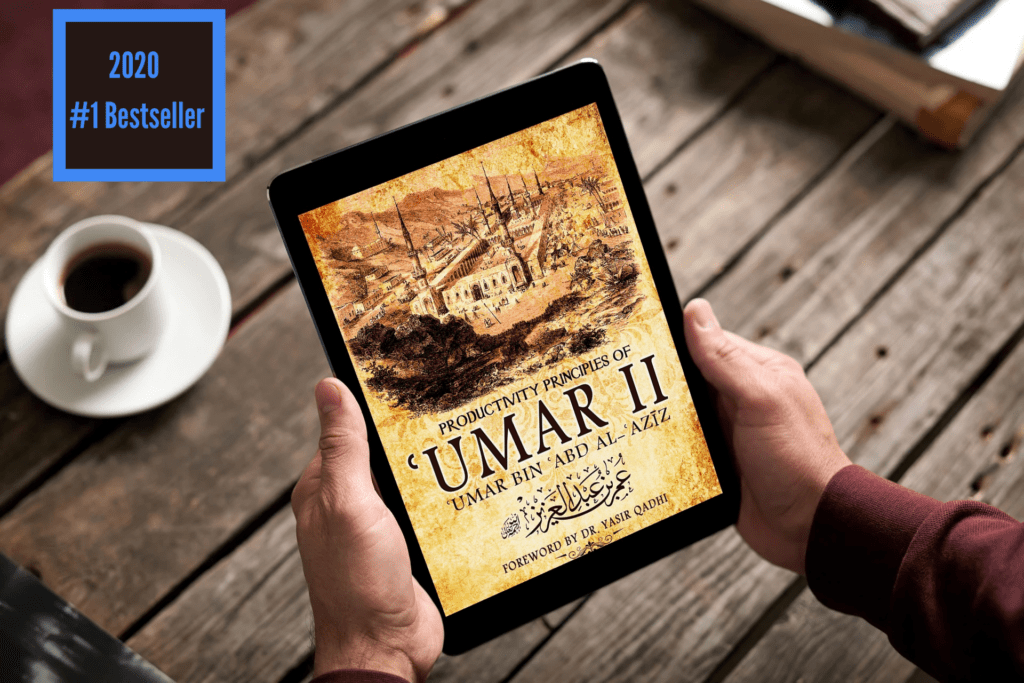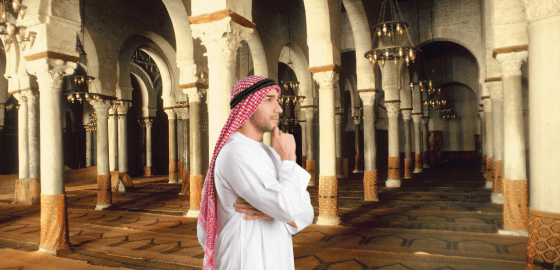Islam seems to mean something very different to people today compared to a thousand years ago. Over the past two centuries, Islam in the minds of many Muslims has become nothing more than a cultural religion; a series of do’s and do not’s. The religion for these people is nothing more than their sect and its interpretation; a strict unforgiving set of rules and beliefs, any deviation from which is pure evil and blasphemy.
This sectarian attitude has spilled over into every other facet of our lives, and in an attempt to Islamize life, too often we over-complicate it. The desire for everything we deal with to be Islamic has caused us to think too narrowly and in doing so, to make narrow that which Allah has left unrestricted and open to diversity. The result of all of this is a strict black-and-white worldview in which everything is categorized as Islamic on unIslamic.
Muslims these days fight with each other over whose organization, product, or website is more Islamic than the other. Each trying to prove the other is somehow deviant, misguided, or evil. Even though, in many of these cases, both sides are doing things that are simply permissible. The need to label everything as Islamic, and for everything that is labeled Islamic to be perfect, has caused a lot of animosity and division on issues that are not really important at all.
This seems to be a new phenomenon, a product of our times. We are obsessed with labels of Halal and Islamic, even when they are not needed. Do those socks really need a Halal label? Does that holiday to Spain really need to be packaged as an Islamic Holiday? These are just some questions we need to ask ourselves before we stick a label before something. Is that label even necessary to being with?
Early Muslim Paradigms
Any study of Muslim History will reveal that this divide between Islamic and unIslamic is almost non-existent in the minds and lives of early Muslims. it is true that Muslims advanced Algebra, but they never tried to create an Islamic Algebra or an Islamic Math. Math was Math and Muslims just used it for religious reasons when necessary, eg: when calculating Zakah and Inheritance.
The early Muslims made tons of contributions to medicine and science, but they never looked at these as Islamic Medicine or Islamic Science. Medicine was a shared field between people of all religions and Muslims contributed to it because of Islam’s overall emphasis on health and hygiene. They did not see the need to categorize it as Islamic or the necessity to justify it by linking it to specific verses of the Quran. It was simply permissible and a recommend field that many Muslims pursued.
The early Muslim empire did not have a division between school and Islamic School. There was simply the Madrassa, a place where people learned Math, Language, Science, Fiqh, Hadith, and other subjects without needing to label any subject as Islamic. Their worldview was a simpler one; Islam is our way of life and it allows us to pursue anything that is not explicitly prohibited or harmful to society. With this worldview, the Muslim world flourished and grew into a magnificent civilization.
They viewed the world more from the paradigm of “Everything is permissible until proven otherwise”. Because of this paradigm, they did not feel the need to Islamize everything they did. As long as it was permissible that was good enough. Not everything in life is going to be Islamic and religious, a lot of life is simple permissible and optional.
Do we need Islamization?
Why then today do we have Islamic Schools, Islamic Banking, Islamic Travel, and (yes, ironically) Islamic Self Help? Are these labels even necessary? Can’t we simply have good schools, banks and travel options that are permissible and exceptional without attaching the label Islamic to it?
I believe the label Islamic is really a product of our times, and many of these ideas develop from Muslims living as minorities in Non-Muslim lands. To differentiate ourselves from others, we needed a label. Our schools did not support the secular liberal beliefs of others, so they are essentially Islamic. Our banks are not supposed to engage in interest-based transaction, so we called them Islamic. (Although technically, they are just Halal, not Islamic.)
Likewise, when I started Islamic Self Help, it was with the same ideas in mind. Many ideas in the self help industry stem from materialism, capitalism and new age theories that contradict Islam. To promote a healthy version of self help literature that agrees with the teachings of Islam, I started Islamic Self Help.
However, this label isn’t always needed. This same work can be done without the label Islamic, and sometimes that may be better. In the case of banking, calling our banking system ethical or humane could help it become more mainstream, as it is simply ethical halal banking, and not Islamic in itself.
Even with our school system, too often we try so hard to be Islamic that we force our teachers to find ways to relate every single math, English, and science lesson to Islam, even when there isn’t any need or link. The result feels forced and unnatural. Why not just teach these subjects as they are, and only bring Islam into it when it is natural and necessary? Not every Math class needs to include a discussion on how al-Khawarizmi invented Algebra. Sometimes, you just need to teach Algebra!
Conclusion
Sticking the label Islamic in front of everything we do isn’t how early Muslims interacted with the world. It is a product of our time, living in Non-Muslim lands, and feeling a need to differentiate ourselves. Sometimes it has its value, sometimes we go overboard with this label. Not everything we do needs to be labeled as Islamic, as the majority of things on earth are permissible anyway.
As we grow as a community, we should consider using this label sparingly and only when necessary. Some things need to be called Islamic to differentiate from opposing ideas. A good example of this Islamic Psychology which has a very different paradigm from Secular Psychology. But not everything needs the label. We can have a good business, without the need for calling it “Islamic or Halal (Insert item here)”. We can contribute to the world without naming our organization “Islamic Muslim’s (Insert synonym for organization here”. And we can excel in both worlds without having to label everything we do as Islamic.
Check out our hit book Productivity Principles of Umar II, by choosing one of the links below.



